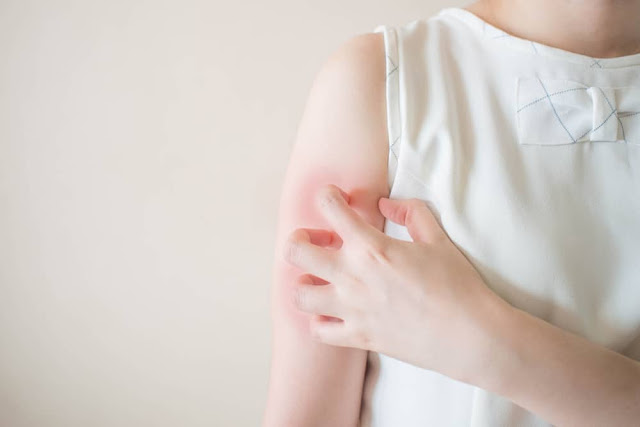What is The Medicine for Allergy
When your allergic reaction recurs, it's not very comfortable, right? The skin becomes itchy, redness, swelling, or feels hot and sore. In addition, allergic reactions that often occur are sneezing, itchy and runny nose, or itchy and runny eyes. At times like this, you certainly need medication to deal with itching of the skin, eyes, or nose. At present there are several types of allergic itching drugs in pharmacies, such as cetirizine or loratadine. To understand more about the drug itching due to allergies, see the following review.
How it works for allergic itching drugs
An itchy allergy medication is an antihistamine which functions to relieve allergic symptoms. When you eat or come into contact with allergens that are actually harmless, histamine produced by the body's immune system will overreact. Histamine also commands the body to fight allergens. This is what causes allergic reactions or symptoms, namely the skin, nose, and eyes itch.
To relieve allergic symptoms, itching drugs function to stop or limit histamine activity in the body. However, allergic itching drugs cannot be used to prevent allergic reactions or treat severe allergic reactions such as anaphylactic.
The choice of an itchy drug due to allergies
If your allergies are recurrent, there are now many medicines to treat allergic itching that can be purchased without a prescription. Here are the most common types of allergic itching drugs.
Cetirizine
Cetirizine is a generic name for second generation antihistamine drugs. This drug can fight allergic symptoms without causing drowsiness. Cetirizine is available in tablets, syrups and drops (drop). Like most other second-generation antihistamines, these drugs only need to be taken once a day or according to the dosage recommended by your doctor or pharmacist.
Loratadine
This itching drug is similar to cetirizine. Loratadine is also a second generation antihistamine drug that does not cause drowsiness and is taken enough once a day. Various studies have revealed that cetirizine and loratadine are both effective in overcoming allergy symptoms, namely hives. However, for a faster antihistamine effect, cetirizine is still superior to loratadine.
Fexofenadine
Compared to other second generation antihistamine drugs, fexofenadine is the least side effect. According to various surveys conducted by experts, some people still feel sleepy after drinking cetirizine or loratadine. Meanwhile, fexofenadine at least causes drowsiness. However, according to a study in 2001, cetirizine and loratadine were still faster in stopping histamine.
Diphenhydramine
Unlike other itching drugs, diphenhydramine is a first generation antihistamine drug. So, this drug causes drowsiness and weakness. If you want to take this medicine, make sure you are not driving or operating the machine. However, many people report that its efficacy to relieve itching is faster compared to second generation antihistamines.
"Situs ini dibuat dengan tujuan untuk membantu orang lain baik yang sedang menjual atau pun mencari rumah di Jepara dan sekitarnya seperti Demak, Kudus, Pati dan Semarang dan sekitarnya adapun data yang ada berasal dari group jual beli rumah seperti facebook, whatsapp atau yang lain. Harapan kami situs ini bisa menjadi sumber informasi yang bermanfaat" Rumah bukan hanya sekedar tempat untuk berteduh, rumah tempat kita berkumpul dengan keluarga yang kita cintai, tempat kita berbagi kebahagiaan dengan mereka. Oleh karena itu sebelum anda memutuskan untuk membeli sebuah rumah selain lokasi yang strategis, harga yang pas dengan keuangan anda, keamanan dan kenyamanan lingkungan rumah yang akan anda beli anda harus membicarakannya terlebih dahulu kepada keluarga anda. Dan jangan lupa untuk mencari informasi tips membeli rumah atau perumahan yang aman. "
BAGIKAN ARTIKEL INI KE TEMAN ATAU SAUDARA ANDA











